Tina Pic: The unlikely queen of the criterium
Six-time pro criterium champion highlights most memorable races during 25-year career
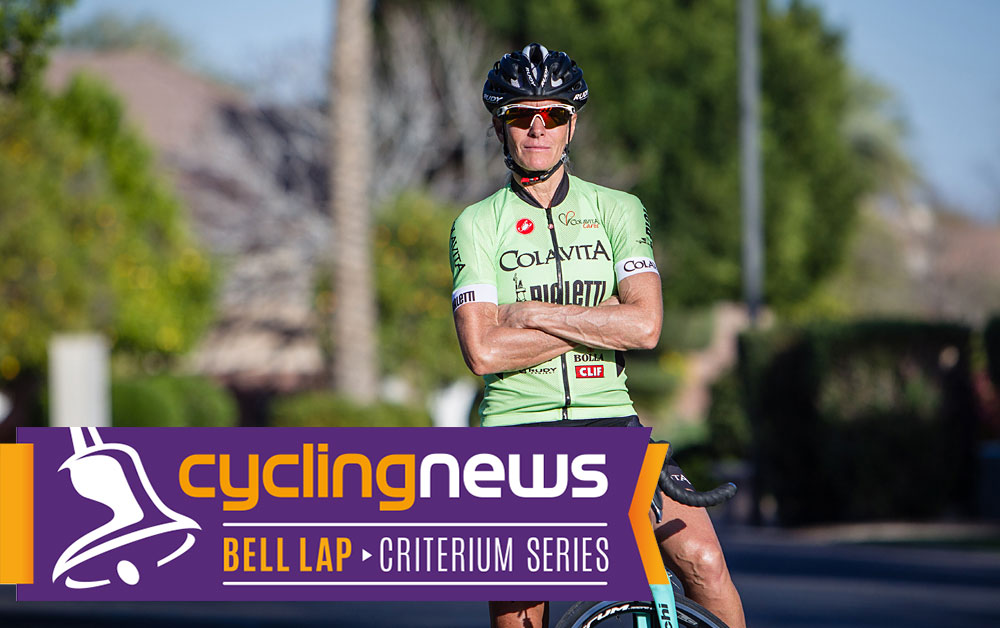
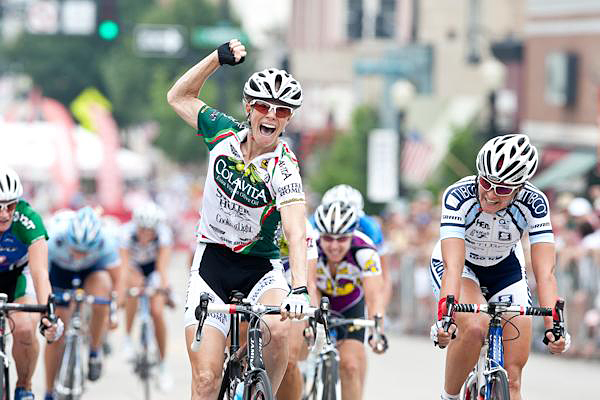
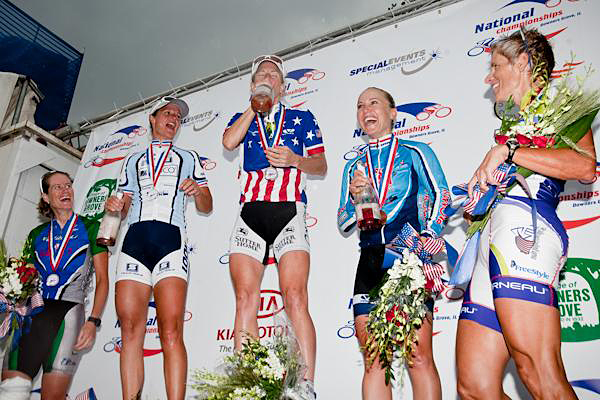
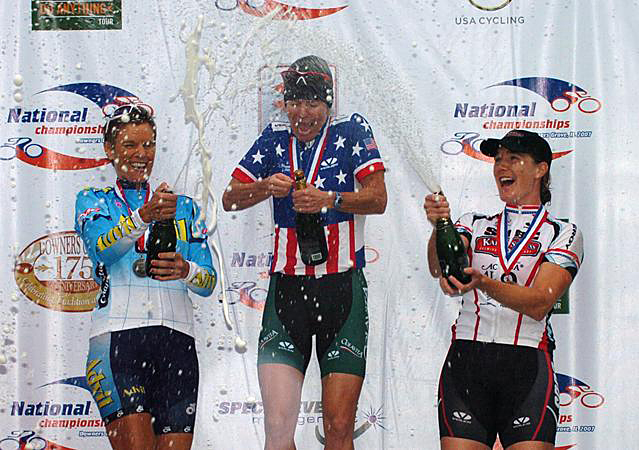
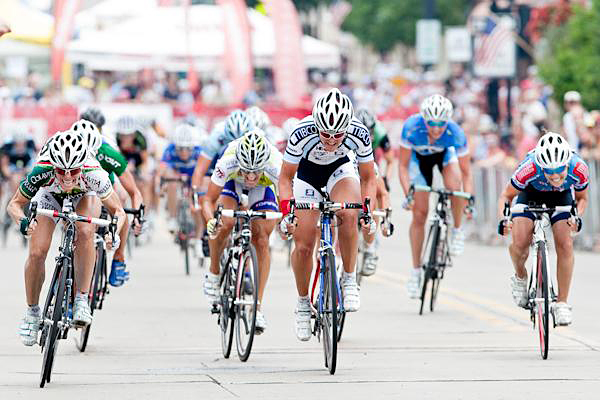
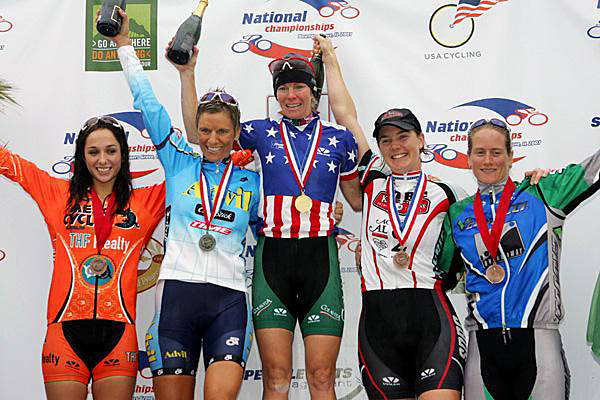
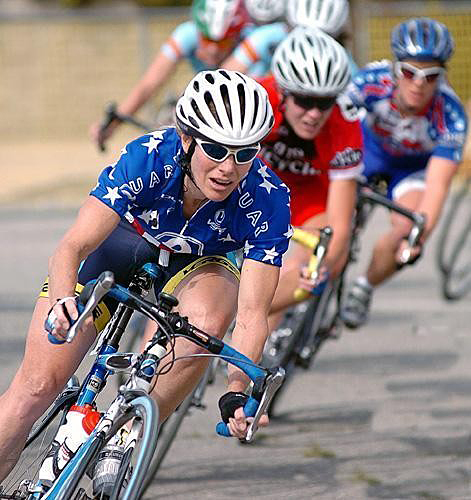
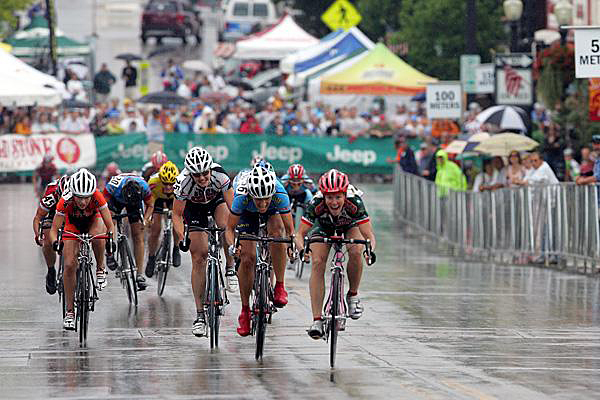
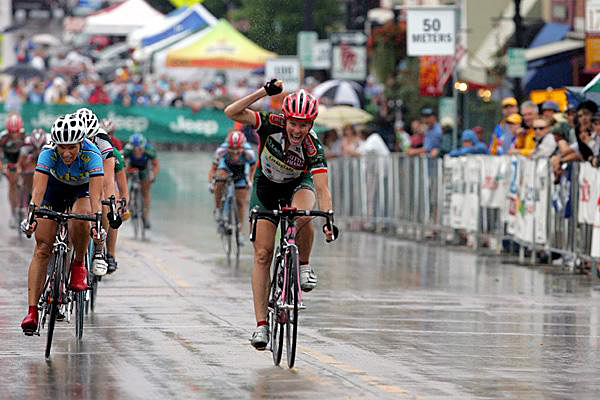
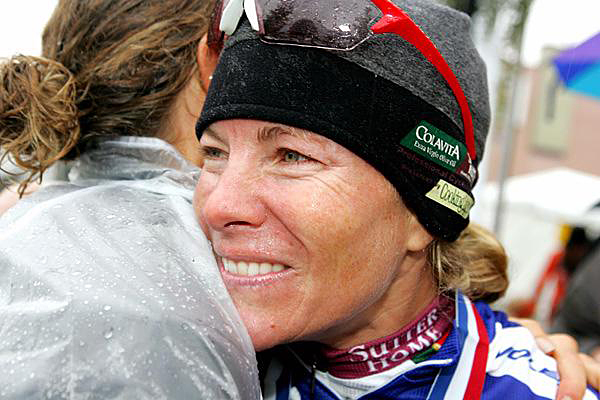
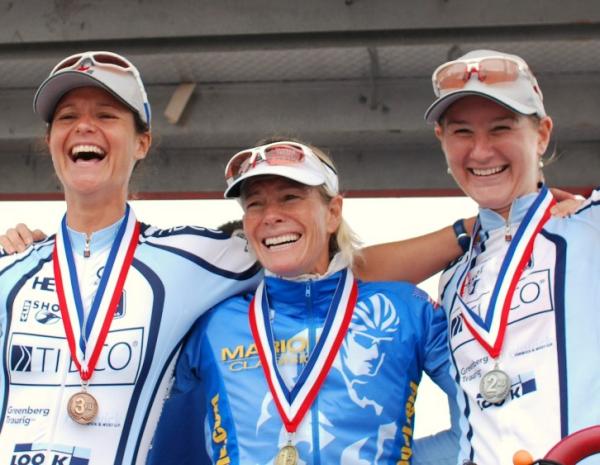
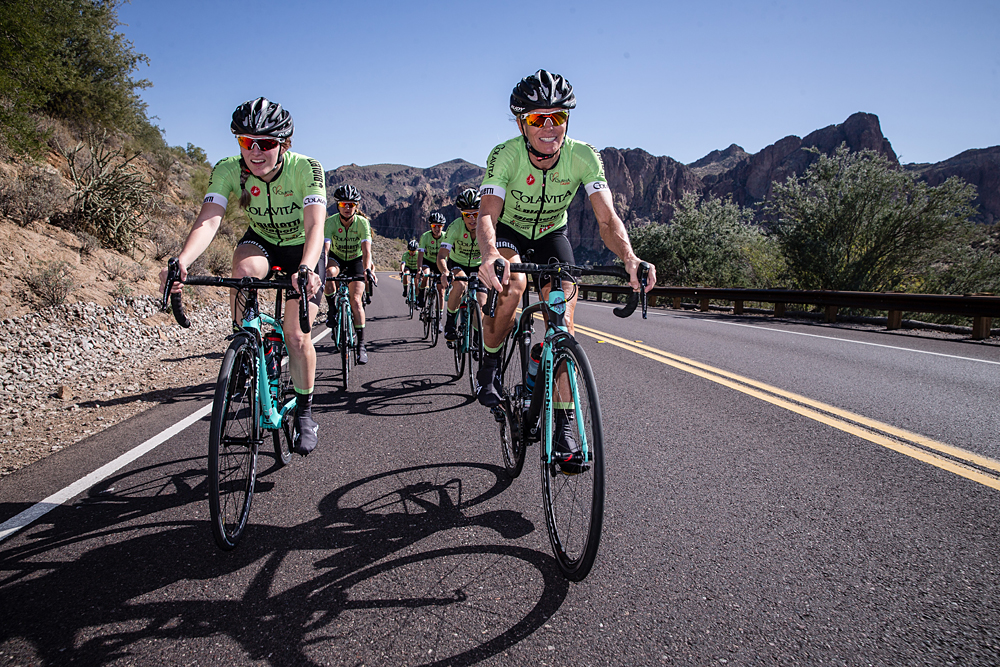
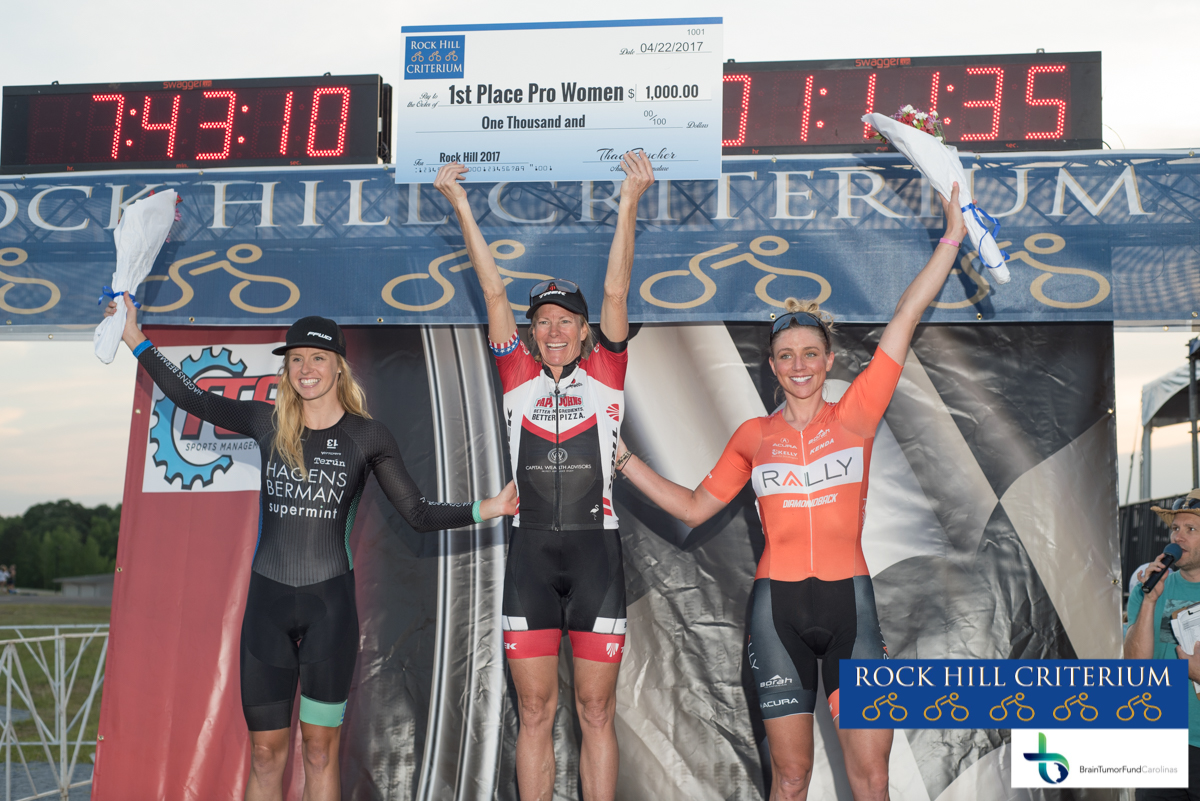
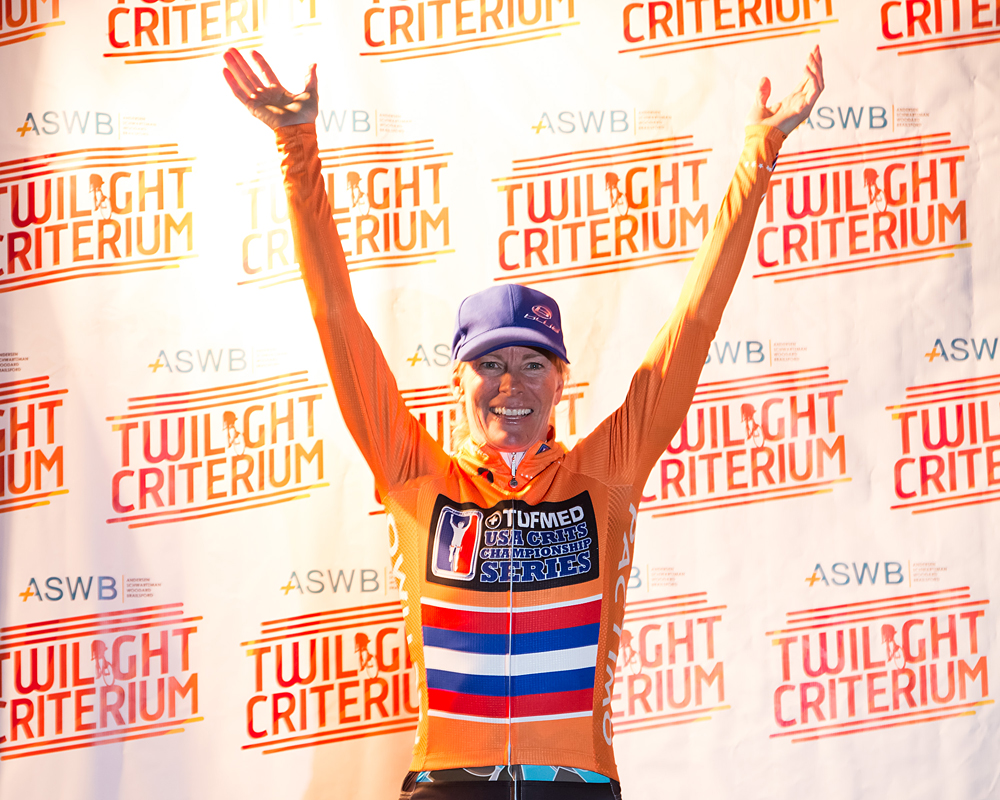
Tina Mayolo-Pic's name is one that is synonymous with criterium racing, sprinting, and stars-and-stripes jerseys. With a career that spans nearly 25 years, she is one of the most successful cyclists to come out of the US and has an illustrious resume that includes a record six US professional criterium titles.
In an interview with Cycingnews, Pic discussed her decision to continue racing at the elite level into her 50s, despite a brief retirement in 2009, and the support of her husband, Chris Pic. She also highlighted a hard-to-pick list of five of the most memorable criteriums of her career.
It's hard to believe, but Pic wasn't always cagey or fast on a bike, and she says that she often couldn't even find the rhythm of a 60-minute criterium. She hasn't always been a bike racer either, which is also hard to believe because it seems like she's won hundreds of races since she started in 1994.
She grew up in Alexandria, Virginia, and completed a Bachelor's Degree in Finance and Marketing from the University of Virginia. She finished the IRONMAN twice, worked at Club Med and then Molson for four years before enrolling at the University of Georgia with hopes of becoming an orthopaedic surgeon. She completed two years of post-graduate studies and then before medical school, decided to try cycling: it stuck.
"Here I am, in what feels like a million years later, still racing," Pic says. "I just love this sport. Sometimes I ask myself why I didn't continue with med school or why I'm still doing this, and I don't know the answer.
"Maybe it's the goals or the excitement. And you know what the funny thing is? The last thing I thought I would ever be was a criterium rider. I used to be so bad at criterium racing, so bad that my former teammates used to say 'she can't ride a criterium to save her life'.
"Gradually, over a long period, it clicked, and I figured out how to race crits; where to position myself, where to save energy and how to read the races."
Get The Leadout Newsletter
The latest race content, interviews, features, reviews and expert buying guides, direct to your inbox!
Although Pic excelled in criteriums she was much more than a sprinter. She has played significant roles in some of the hilliest one-day and stage races in North America; Redlands Bicycle Classic, Tour de Toona, Valley of the Sun, Sea Otter, Tour of Willamette, San Francisco Grand Prix, Wendys International Cycling Classic, Mt Hood Cycling Classic and Tour of Montreal … the list goes on.
It's Pic's national criterium titles, however, that will go down in history because no one has come close to her record six victories, and it's doubtful that anyone currently competing ever will.
She attributes some of her success to her husband, Chris, for his unconditional support over the last 25 years, and says it would have been tough to accomplish her goals without his help. The pair met in Athens in 1994 and married in 1999.
"He used to race first, and the tell me where to position myself and how to win. We trained together so much, and he knew my strengths and weaknesses, and how to best play on them. He was my greatest tactician. Also, to have a partner that is that supportive through all these years in a sport that makes very little money to show for it is a hard thing to do - especially when sometimes other important people in your life aren't as accepting of your decisions."
Pic is currently competing for the Colavita-Bialetti team and will be participating in select criteriums across North America this year, many of which will be part of our Cyclingnews criterium series - The Bell Lap.
She will next line up at Athens Twilight on April 28, which was her first race back in 1994, and one that she went on to win in 2004. And she is still a favourite for the victory.
She highlighted five of her all-time favourite criteriums, noting their technical courses, electric crowds, career-changing outcomes, the bonding experiences she had with her teammates and other memorable moments.
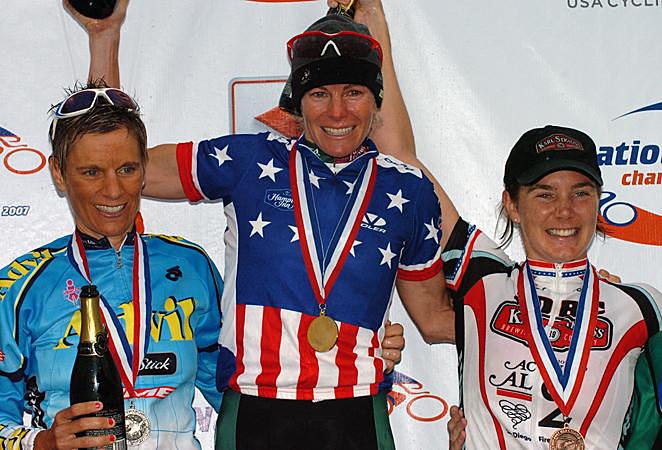
Athens Twilight Criterium - Victory in 2004
Athens is my favourite criterium. I always considered Athens my hometown race, at the time, because it's where I started collegiate bike racing (University of Georgia).
Athens was my very first big criterium in 1994. Coming from a triathlete background to racing Athens - I mean, I didn't really know what I was doing. I was chasing riders, pulling a ton, and back then I couldn't sprint my way out of a paper bag. Of course, after pulling for the whole race, they all sprinted around me for the finish line - it didn't feel very fair at the time, but soon I realised that was dumb on my part.
Athens was always nearly impossible to win. I had only actually won that race one time in my career (2004), and Laura van Gilder led me out that night.
That race has such a great atmosphere with a lot of fans and parties, and it's chaos. It was always like a flippin' zoo; people crashed a lot, and if it rained, you could end up in the pits five times, but the atmosphere made it so much fun. It meant so much to me to finally win that race because it was pretty much the first race I had ever done.
Gastown Grand Prix - Victory in 2016
Gastown is such a cool race in Vancouver, and the organisers always put on great races up there. It has cobblestones, too, which makes it very hard, along with downhill on the backstretch and a false flat section. I love this race because they get great crowds, it's a really cool area, even though the atmosphere has a little bit of a dark element, sort of back-alley-like. When you win money at that race, you have to go up to this back room to collect your cash. I walked out of there with $12,000 in Canadian bills once. They handed me the cash, and you have to count it to make sure it's all there. It's a bit of shady area. You walk out with all this cash at night, people are on the streets asking you for a dollar, and you're running to your car because it all seems so weird.
We just couldn't even believe we won it, though. We had a rough go of it because we had been at Tour of America's Dairyland for 10 days and travelling there was hard. Christina Gokey-Smith had these allergic reactions, like hives, and she'd woken up in the morning of the race with a swollen eye. I didn't see her the whole race, and I thought she was in a bad way, but two corners to go, she comes out of nowhere. She gets in front of me and goes as hard as she can over the cobbles and up the hill, and she takes the last corner so hot that she pretty much rode up onto the curb, and somehow I managed to win it.
I was 50 years old that year, in 2016, and I couldn't believe that I won it. Some of the girls that were racing could be my kids. When I was on the podium, the announcers said to bring my old legs back the next year. I thought that was pretty funny.
Here's the thing, it takes a long time to learn how to race criteriums and being comfortable and tactically savvy are probably the last things you end up learning. Also, criteriums are only an hour so when you get older, and maybe have other priorities, you can still get the training in around the other demands of your life.
Tour of Somerville (Mildred Kugler Women's Open) - Victories in 2000, 2006, 2008 and 2009
Somerville has been around for so long. It is such a tricky race, though. The course is so wide open that almost anything can happen. A lot of other courses are easier to gauge because there are sections that standout, whether there is a hill or a section that is technical, but Somerville is different. The final is so long that you have to be able to time your sprint perfectly for the finish. I don't remember how many times I won it, maybe once or twice [Pic won Mildred Kugler Women's Open four times - ed.]
It's kind of a crash-fest, a very odd criterium, and I still have a tire burn on the back of my leg from that race.
Laura van Gilder is from Pennsylvania, and so Tour of Somerville was kinda her race, the one that she always targeted. It was hard because sometimes we were on the same team and sometimes we were racing against each other, over the years. With criterium racing, and if you race long enough, you are going to end up racing with everyone at some point in your career.
Tour of Somerville [Van Gilder also won the race four times - ed.] was just one of those summertime races that everyone does. The best races are the ones where to crowds come out, and there are so many people around.
Clarendon Cup - Victories in 2006 and 2014
I grew up in Alexandria, which was about 10 minutes away from Arlington, and so we would always ride there in the morning and then ride back home after the race.
Clarendon Cup has a very cool course because it is so technical. It's a hard race to figure out and a hard race to win. Every race is hard to win but the ones that are hardest make you feel the most accomplished if you can pull off the win. There are so many races that we don't win, and maybe we are lucky to win a race every once in a while, but when a race is so notoriously hard, winning it is such a good feeling.
The course is so tight, and it has so many corners with not a lot of room to move up. Usually, you can find the rhythm of a course or find a place to move up, but Clarendon Cup only has the start-finish stretch, and that's where everyone wants to move up. It's a grind, and everyone knows that that is the one place to move up, so it's always so strung out, and for as long as that section is, everything else is so short.
It's a hard, technical and tactical race, and that is what makes it so cool. It's also hot and humid. It's like racing in a swamp there. Some races are nice because of the crowds, but Clarendon Cup is cool because the course is so cool. Every criterium is like a game to figure out; I'm glad I figured out Clarendon Cup.
USA Pro Criterium Championships - Downers Grove: Victories 2002-2005, 2007 and 2009
Downers Grove was definitely the most special race of my career. I really liked that course. It had a back-side hill, you had a chance to rest on the downhill front side, but then with all the turns, you had to be in the right spot at the right time for the finish.
I lost it so many times at first, and I watched how the other women had won it before me. In 2001, my Auto Trader teammate tried to lead me out but ended up leading Laura van Gilder out and she won it. It was my fault because ultimately I was supposed to be in the right place. I felt like I could do it, and I was so close, but I hadn't quite figured out how. I wanted to win my first title. I really beat myself up over that loss for a while because I was right there, but I wasn't. I had to wait for a year to try again and figure out how to win it. I knew that I could do it. I just didn't know how.
I'm a longer sprinter, so I have to go a little early and catch everyone off guard. I realised that that worked, and that's partly how I won it in 2002 and, for a couple of years in a row, and I couldn't believe people weren't catching on to it.
Later on, it was hard; there were other riders coming up who were strong sprinters, like Brooke Miller. You always had to be on the inside line during that last turn on that course. In 2008, Brooke got to the corner first and took the inside, and I got pushed out, and she won.
In 2009, my sixth and last win, our team worked so hard bring back all the breakaway, and they did. With three laps to go, I remember looking around, and all my teammates were gone because they had worked the whole race. People gave up so much to help me win. I had no one left.
It was between Brooke and me again, and this time I had the inside line through the last corner, and I couldn't believe it. That was really what was going to win the race. At the time it seemed like dumb luck that I ended up being right where I needed to be to win the race a sixth time, but now I think it came down to experience.
I don't know if winning the titles has impacted my life, but I think that with each title that I won, I felt more pressure. I think I put more pressure on myself. You would think that I had nothing left to prove, but for some reason, it became harder and harder.
I wasn't too sad when they moved criterium nationals away from Downers Grove. I felt like it was time for a change.
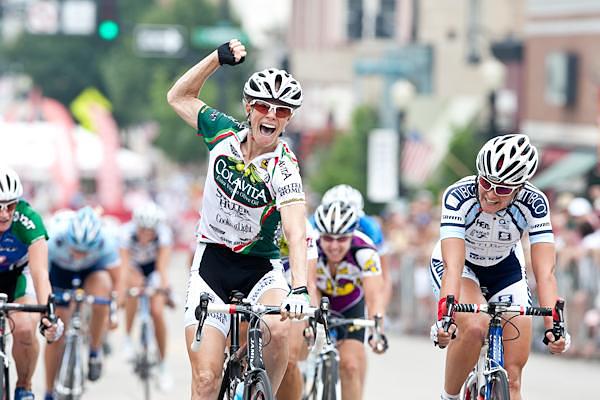

Kirsten Frattini is the Deputy Editor of Cyclingnews, overseeing the global racing content plan.
Kirsten has a background in Kinesiology and Health Science. She has been involved in cycling from the community and grassroots level to professional cycling's biggest races, reporting on the WorldTour, Spring Classics, Tours de France, World Championships and Olympic Games.
She began her sports journalism career with Cyclingnews as a North American Correspondent in 2006. In 2018, Kirsten became Women's Editor – overseeing the content strategy, race coverage and growth of women's professional cycling – before becoming Deputy Editor in 2023.